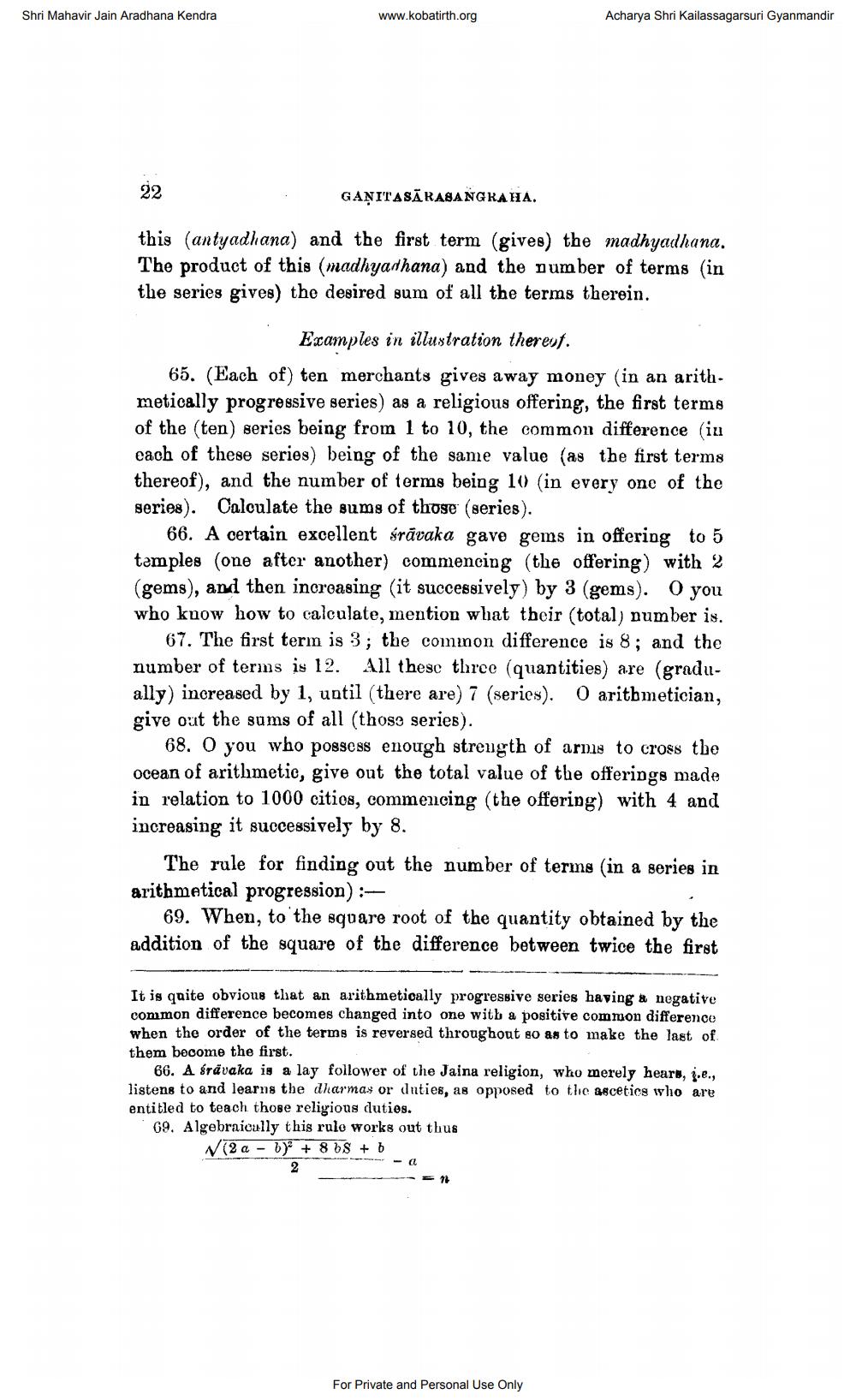________________
Shri Mahavir Jain Aradhana Kendra
www.kobatirth.org
Acharya Shri Kailassagarsuri Gyanmandir
22
GANITASĀRASANGRAHA.
this (antyadhana) and the first term (gives the madhyadhana. The product of this (madhyadhana) and the number of terms (in the series gives) the desired sum of all the terms therein.
Examples in illustration thereof. 65. (Each of) ten merchants gives away money in an arithmetically progressive series) as a religious offering, the first terms of the (ten) series being from 1 to 10, the common difference in each of these series) being of the same value (as the first terms thereof), and the number of terms being 10 (in every one of the series). Calculate the sums of those (series).
66. A certain excellent srāvaka gave gems in offering to 5 temples (one after another) commencing (the offering) with 2 (gems), and then increasing (it successively by 3 (gems). O you who know how to calculate, mention what their total number is.
67. The first term is 3; the common difference is 8; and the number of terms is 12. All thesc three (quantities) are (gradually) increased by 1, until (there are) 7 (series). O arithmetician, give out the sams of all (those series).
68. O you who possess enough strength of arms to cross the ocean of arithmetic, give out the total value of the offerings made in relation to 1000 citios, commencing (the offering) with 4 and increasing it successively by 8.
The rule for finding out the number of terms (in a series in arithmetical progression) :
69. When, to the square root of the quantity obtained by the addition of the square of the difference between twice the first
It is quite obvious that an arithmetically progressive series having a negative common difference becomes changed into one with a positive common difference when the order of the terms is reversed throughout so as to make the last of them become the first.
66. A frävaka is a lay follower of the Jaina religion, who merely hears, q.e., listens to and learns the dharmas or duties, as opposed to the ascetics who are entitled to teach those religious duties. 69. Algebraically this rule works out thus
(2a - b) + 8 6S + b
For Private and Personal Use Only




